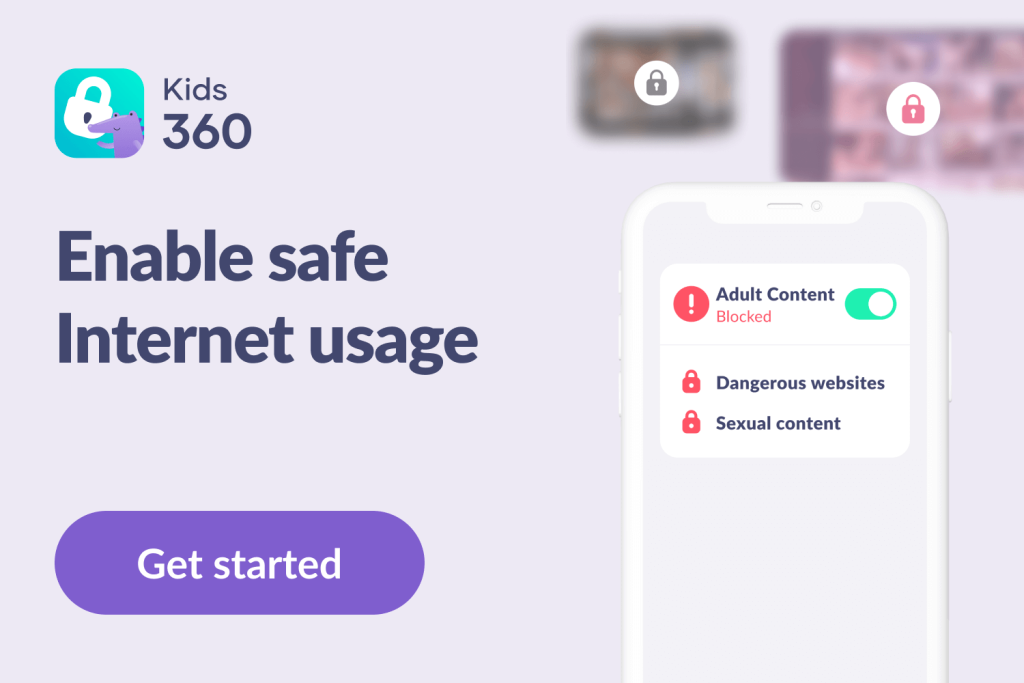“Thought Daughter” Is All Over TikTok—Here’s What It Really Means

If your teen uses social media like TikTok or Instagram, then you have probably heard the new online trend of “thought daughter” come up. We’re diving into the “thought-daughter” phenomenon and what you should know about it as a parent.
Contents:
- What is a “Thought Daughter”
- Why This Term Matters and What it Reveals
- Parental Guidance: How to Support Your “Thought Daughter”
- How to Talk to Your Teen if You Hear the Term
- Supporting Your Child with the Right Tools
- FAQs
What is a “Thought Daughter”
@ali.shelf Replying to @*ੈ✩‧₊˚ jade here’s my explanation of the “thought daughter” community and why it’s growing so fast #thoughtdaughter ♬ original sound – ali ✿
A “thought daughter” is a term for a girl or woman who thinks deeply and feels a lot. It came from turning the derogatory term “thot,” which means “that ho over there,” into something positive. Women took away the misogynistic meaning of the term and used its phonetic similarity to create the “thought daughter movement”. This idea got popular on TikTok in 2024 with fun and creative videos that made being thoughtful and introspective cool.
The term “thought daughter” started with a street interview question: “Would you rather have a gay son or a thot daughter?” At first, it was controversial, but then it became a social media trend that highlights good traits. Girls on TikTok use the term to show they love things like reading, art, and ideas, showcasing their self-awareness and empathy.
This “thought daughter” movement and identity not only captures youthful introspection but also challenges stereotypes by showing the brainpower and emotional intelligence of women. Embracing the term helps young women and girls feel empowered, focusing less on looks and more on what’s inside and personal growth.
Why This Term Matters and What it Reveals

Prostock-studio/Shutterstock
The term “thought daughter” has become ingrained in the cultural dialogue, both as a humorous hashtag and as a broader reflection on the interplay between emotions, intellect, and identity in today’s digital age. While it initially aimed to affectionately label those who are deeply empathetic and intellectually inclined, it has become a significant touchpoint in understanding evolving identities. The “thought daughter” archetype is significant because it highlights a growing recognition of emotional depth and the importance of intellectual pastimes like reading, art, and music.
A typical “thought daughter” might be the girl who often loses herself in the pages of a novel, or who can happily spend hours browsing through art galleries. She’s the one who feels deeply for others, always taking the time to help a friend in need. Cultural icons like Fiona Apple or Lana Del Rey capture parts of her essence, blending intelligence with emotional richness.
She enjoys indie films and keeps a journal (a classic “thought daughter” item) where her wandering thoughts can find a home. Yet, along with her depth, she may struggle with overthinking, making her both exhausted by her emotions and empowered by them. This allows her to navigate life’s intricacies with a nuanced understanding, making “thought daughter” not just one of the popular internet trends but a lens to view today’s introspective women and overthinking girls.
Parental Guidance: How to Support Your “Thought Daughter”
@fatherlesscake real #thoughtdaughter #bigthief #sylviaplath #familyguy ♬ original sound – brooklyn⁷
It’s time to dive into the original question of what parents should know about this cultural trend of “thought daughters”. Firstly, it’s important to point out the similarities between eldest daughter syndrome, as both thought daughters and eldest daughters tend to overthink, have feelings of anxiety, and tend to be more introspective.
While it may seem like a contentious trend or girl discourse for young girls to take on a new thought daughter aesthetic, there are generations of women who showcased these characteristics, with many of them becoming girl writers, musicians, and artists.
How to Connect with a “Thought Daughter”

fizkes/Shutterstock
Connecting with a “thought daughter” means embracing her world of deep thinking and emotions. Start by actively listening. Let her share her thoughts without interruption, such as discussing cultural shifts, societal prejudices against liberated women, and the objectification of women, as the infamous “thought daughter” is often thinking about girl discourse, societal pressures, and how the world works. This helps her feel valued and understood. Encourage her passion for books, music, and art.
Sharing a favorite book or playlist can open valuable conversations. Be open to discussions about her feelings, even if they seem intense. Validate her emotions and reassure her that it’s okay to feel deeply.
Be patient and give her space to process. A “thought daughter” may need time to articulate her thoughts. Show interest in her ideas and encourage her to explore them. Create an environment that fosters creativity and emotional expression. Allow her to ask questions and engage in meaningful discussions.
Most importantly, reassure her of your unconditional support and understanding. This foundational trust can strengthen your connection and help her navigate her complex emotions with confidence.
When to Worry About Your “Thought Daughter”

Trzykropy/Shutterstock
As parents, it’s important to be attuned to any shifts that could signal your “thought daughter” is struggling beyond typical overthinking. While experiencing emotions intensely is part of their nature, certain signs suggest a deeper issue.
If she withdraws from social activities or things she once loved, it could indicate worsening mental health. A persistent drop in grades or interest in school might also be a red flag.
Notice if she frequently talks about feeling overwhelmed or expresses feelings of hopelessness. These may be masked behind humor or art, but shouldn’t be ignored. Consistent changes in sleeping patterns or appetite might suggest anxiety or depression. Watch out for increased irritability or emotional outbursts that are unusual for her behavior.
If she often criticizes herself or seems paralyzed by indecision and self-doubt, showing heightened anxiety, it’s worth discussing. Art and media she engages with might lean too heavily into dark, depressive themes, which can be a coping mechanism but also indicate struggles.
Though “thought daughter” appears introspective, they might still need guidance to address more profound issues. An open dialogue and professional support, if needed, can help navigate this complex emotional landscape.
How to Talk to Your Teen if You Hear the Term
Remember, the original trend of “thought daughter” stemmed of the overly offensive trend of “Thot daughter.” If you hear your children using the term, make sure to understand which one they are referring to, as they have two very different meanings.
If you suspect your daughter identifies as a “thought daughter,” talk to her about their feelings, if she feels that she overthinks situations, and have an open conversation about her feelings and interests to connect with her.
Supporting Your Child with the Right Tools
Parenting in the digital age comes with unique challenges, especially when your child’s identity is shaped not just by school and family, but by algorithms and trends. While conversations are the foundation of a strong parent-child relationship, digital tools can also help you stay informed and supportive without hovering.
apps like Kids360 can be part of a mindful parenting toolkit. With it, you can:
- Set healthy screen time limits, reducing overstimulation and late-night scrolling
- Block inappropriate or triggering websites, which may feed into anxiety or negative self-image
- Track app usage and online patterns, helping you notice early signs of doomscrolling, obsessive behavior, or exposure to toxic content
The app also sends daily reports that give you a clear, non-invasive overview of your child’s digital habits—without needing to scroll through their phone or violate their privacy.
Think of it as digital scaffolding: you’re not trying to control their every move, but you are building a safe framework within which they can explore, stumble, and grow.
By staying connected—both emotionally and digitally—you’re helping your child make sense of an online culture that often feels like too much, too fast. And that kind of quiet support? It speaks volumes.
Understanding “Thought Daughter” and How to Approach the Subject

Dasha Petrenko/Shutterstock
Growing up, every girl goes through periods of self-discovery, exploring what they like and who they are. Some girls find that they are overthinkers who enjoy exploring intellectual conversations, books, art, films, and music. Going back to our original question, parents should allow their daughters to thrive in their self-exploration and support them.
If you found this blog post helpful in understanding the term “thought daughter” or if you know someone who might have a daughter who identifies with this archetype, share this blog post!
FAQs
What is the meaning of “thought daughter”?
A “thought daughter” is a term describing a girl or woman who is deeply introspective, emotionally empathetic, and enjoys engaging in intellectual or creative pursuits.
What is a “thought daughter” in Psychology?
In psychology, a “thought daughter” describes individuals who engage in deep thinking and introspection, often experiencing heightened emotional responses and empathy. This reflects a cognitive style oriented towards reflection and an intense focus on understanding emotions.
What is a “thought daughter” in Urban Dictionary?
Urban Dictionary defines the term as, “used mostly on TikTok to describe a teenage girl who is rather philosophical/thinks a lot—somebody who reads a lot of classics, owns folklore Taylor Swift vinyls and listens to Phoebe Bridgers.”
What is a “thot daughter”?
The initial trend of a “thot daughter” is describing a girl who is oversexualized in how she dresses and acts. The term “thought daughter” stemmed from this term thanks to the phonetic similarity.
Cover image: DimaBerlin/Shutterstock
Проверьте электронный ящик




















